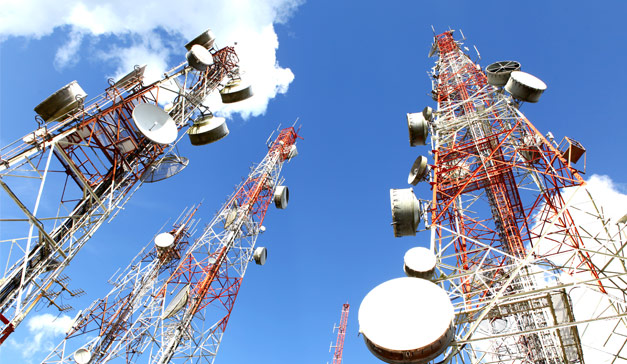Telecom
GSMA Launches New Tool to Measure Mobile Internet Connectivity Worldwide

The GSMA has launched a new online tool that measures the ability of more than 130 countries worldwide to connect offline citizens to the mobile internet.
The GSMA Mobile Connectivity Index measures each country on the four key enablers for driving mobile internet adoption: infrastructure; affordability; consumer readiness; and content.
The tool aggregates best-in-class data from multiple sources1 and is designed to support the efforts of the mobile industry and the wider international community to deliver on the ambition of universal access to the internet.
“Already more than 3 billion people worldwide are accessing the internet via mobile, but this still leaves more than 4 billion people offline and excluded from the powerful opportunities for social and economic development that the mobile internet enables,” said Mats Granryd, Director General of the GSMA.
“Mobile is the primary enabler of connectivity in developing world markets where the high cost of deploying fixed-line networks means that internet penetration is low”.
“Connectivity to the mobile internet is also an important foundation upon which the UN’s Sustainable Development Goals2 depend for their delivery, providing a platform for reducing poverty and improving healthcare, education, commerce, information sharing, employment and innovation.” he added. “The launch of the GSMA’s Mobile Connectivity Index will provide valuable insights that will inform projects designed to support the ambition of universal access to the internet”
According to GSMA Intelligence, there were approximately 3.2 billion people accessing the mobile internet at the end of 2015, representing about 44 per cent of the global population. Among these users, about a third were accessing the internet using 2G networks and two-thirds were using mobile broadband (3G/4G).
This leaves approximately 4.16 billion people, about 56 per cent of the global population, still not on the mobile internet. Among this segment, 2.5 billion people (34 per cent of the global population) live within the footprint of a mobile broadband network but do not access services, while approximately 1.6 billion (22 per cent) live outside of a mobile broadband network footprint.
Measuring Enablers Using the GSMA Mobile Connectivity Index
The GSMA Mobile Connectivity Index is an analytical tool that measures the performance of 134 countries, representing more than 95 per cent of the world’s population, against the four key enablers that are essential to driving mobile internet adoption:
Infrastructure – the availability and quality of high performance mobile internet network coverage. Without network coverage, people cannot get online, and without high-performing networks it is more difficult to access the full potential of the internet.
Affordability – the availability of mobile services and devices at price points that reflect the level of income across a national population. Aside from prices and incomes, affordability is also affected by the level of taxation, as well as inequality – if income distribution is skewed towards a small proportion of the population, the mobile internet will remain unaffordable for many people.
Consumer Readiness – citizens with the awareness and skills needed to value and use the internet. Without the necessary skills and supporting cultural environment, individuals may not understand how to use the mobile internet or appreciate how it can benefit them. Some individuals, especially women, might also find themselves prevented from accessing the mobile internet in some countries.
Content – the availability of online content and services that are accessible and relevant to the local population. Consumers are less likely to connect to the mobile internet unless there is online content and services that are relevant and would be of benefit to them. This might be as simple as having content in their native language or it might be the availability of certain apps or services such as social media, banking or education.
Telecom
Abia Set to Regulate Right of Way for Telecom Cables

Abia State Government said it was set to regulate the right of way for laying of telecommunications cables around the state. This is as the state government said it will re-base and update the 30 – year development plan of the state to bring it in line with present realities.

The Commissioner for Information, Prince Okey Kanu disclosed these in Government House Umuahia, while briefing journalists on the outcome of the first State Executive Council meeting of the year.
Kanu explained that re-basing has become imperative given the economic headwinds prevalent in the country and as typified by the headline
inflation being experienced in the country today.
The Commissioner noted that there was need to carry out the exercise to reflect the real position of the state’s economy.
He informed that the state economic team charged with the assignment was already at work to ensure the success of the exercise.
“The final document for the right of way regulation for laying of telecom cables around the state has been produced and this will come into effect very soon.
“That is meant to regulate how telecommunications cables are laid across the state,” Kanu said.
Kanu disclosed that Government has concluded plans to rejig the enforcement of the existing traffic rules in the state as a way of restoring sanity in the transport system of the state
He said EXCO observed with dismay that driving against traffic in the state has become a menace and stated the Alex Otti administration was committed to enforcing the traffic rules.
“Going forward, it will be a serious offence to drive against traffic no matter the distance. You see a lot of people within the town drive against the traffic for one reason or the other.
“It is now a very serious offence and the harmonized taskforce has been rejigged to ensure full compliance to that policy.”
Kanu informed that the state government has commenced the payment of monthly stipends that range between N250,000 to N450,000 to traditional rulers in the state.
Telecom
MTN Nigeria Achieves Historic CMS Certification

MTN Nigeria has achieved a major milestone by becoming the first Nigerian organisation, the first company in the telecommunications industry, and the first within MTN Group to earn the Compliance Management System (CMS) certification from the International Accreditation Service (IAS).

This globally recognised certification affirms MTN Nigeria’s commitment to maintaining world-class compliance standards across its diverse operations.
It covers all management activities related to telecommunications, digital services, mobile voice and data, innovative digital platforms, wholesale distribution, fixed and mobile broadband connectivity, and advanced technology solutions for corporate and institutional clients across the nation.
Commenting on the achievement, MTN Nigeria’s Chief Risk & Compliance Officer, Obiageli Ugboma, said, “Achieving this feat is a testament to our robust compliance framework and proactive approach to managing risks in an ever-changing digital landscape.
“It reinforces our promise to connect Nigerians with secure, reliable, and innovative solutions.”
The International Accreditation Service (IAS) is a globally recognised accreditation body. It accredits a wide range of organisations, including governmental entities, commercial businesses, and professional associations, based on recognised national and international standards.
This ensures that IAS accreditations are both domestically and globally accepted, highlighting their credibility and relevance.
The ISO 37301:2021 Compliance Management System (CMS) standard is the benchmark for effective compliance management.
The certification solidifies stakeholder trust and provides organisations with a framework for establishing, implementing, evaluating, and continually improving a compliance management system that ensures adherence to laws, regulations, and ethical standards.
By achieving this certification, MTN Nigeria demonstrates its commitment to fostering a culture of integrity, mitigating risks, and enhancing corporate governance and operational efficiency.
This achievement positions MTN Nigeria as a leader in compliance management and sets a benchmark for excellence within the telecommunications industry and beyond.
Telecom
Sub-Saharan Africa Lost $1.56Bn to Internet Shutdown in 2024 – Report

Sub-Saharan African countries lost $1.56 billion to government-induced shutdowns in 2024, according to a new report by Top10vpn, an international VPN review website.

This is 19 per cent of the total $7.69 billion that was lost to Internet shutdowns worldwide and a 10 per cent decline from $1.74 billion reported in 2023.
According to the report, there were a total of 28 Internet shutdowns across 28 countries. Thirteen of these were African countries — Sudan, Ethiopia, Kenya, Algeria, Guinea, Mauritania, Senegal, Mozambique, Chad, Mauritius, Tanzania, Papua New Guinea, and Equatorial Guinea.
It revealed that Nigeria stood out as one of the few sub-Saharan African countries to avoid internet shutdowns in 2024.
Experts said the absence of an internet shutdown suggests that people in that country have continuous and unrestricted access to the internet, allowing them to communicate, access information, and participate in online activities without disruption imposed by the government.
Sudan is the African country that lost the most — $1.12 billion — to Internet shutdowns. Total Internet shutdowns in the country lasted for more than 12,707 hours or over 529 days.
The Internet shutdown in Sudan is mainly due to a prolonged conflict in the country, which has claimed 13,000 and displaced more than 10 million people.
Other African countries like Kenya and Ethiopia shut down the Internet because of protests.
Both countries lost $75 million and $211 million to Internet shutdowns, respectively.
Major platforms such as X, TikTok, Signal, Facebook, Instagram, and WhatsApp were restricted, affecting approximately 111.2 million internet users in the country.
“In late February 2024, authorities in Myanmar once again started blocking access to X. As this was a new restriction. This is also the second year we have included blocks of newer social media platforms, such as TikTok and Telegram,” it said.
Globally, Asia led in terms of internet shutdowns in 2024, losing $4.64 billion over 48,807 hours of disruptions affecting 331.3 million people. Sub-Saharan Africa followed with $1.5 billion in losses spread over 32,938 hours and impacting 111.2 million internet users.
While the global economic impact of internet shutdowns decreased by 16 percent compared to 2024, the duration of shutdowns increased by 12 per cent in the same period.
The report emphasised the damaging effects of internet shutdowns, both in terms of economic and human costs, and highlighted concerns about citizens resorting to unsafe VPNs to circumvent imposed restrictions.

 Telecom3 days ago
Telecom3 days agoUSSD Dispute: FG May Blacklist 18 Banks Allegedly Owing Telcos N250Bn

 E-Financial3 days ago
E-Financial3 days agoNGX Warns Public of Fraudulent Impersonation by ‘Value Gain’

 E-Business3 days ago
E-Business3 days agoKaspersky Discovers New Scam Scheme Targeting Businesses on Social Media

 General News3 days ago
General News3 days agoEnterprise Development Fund Launched to Bridge Capital Access Gap

 News3 days ago
News3 days agoAfDB to Partner LAMATA to Expand Existing Rail System

 General News3 days ago
General News3 days agoUBA Rewards Customers with over N41m in Final Edition of Legacy Promo

 E-Business3 days ago
E-Business3 days agoNIMC Trains 388 Personnel to Boost NIN Enrolment

 News2 days ago
News2 days agoEFCC Dismantles Fake Hotel Review Syndicate, Arrests 105 in Crackdown
















